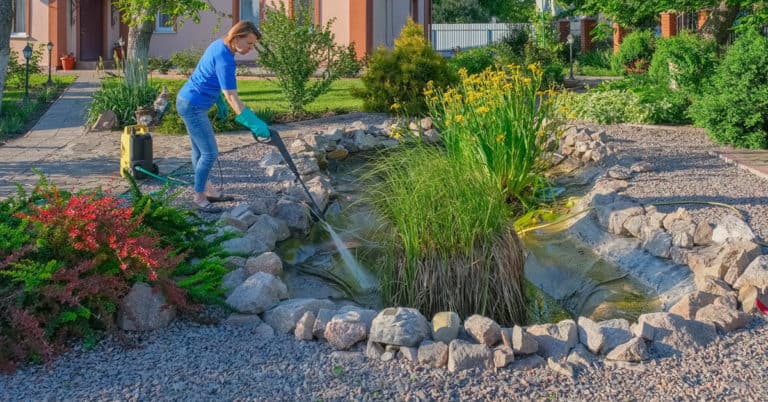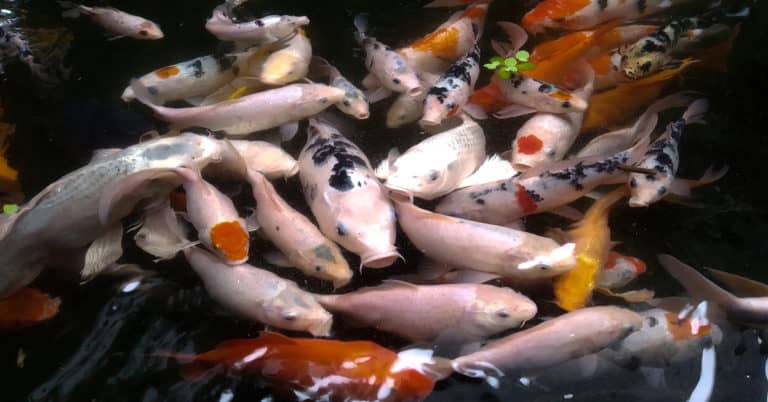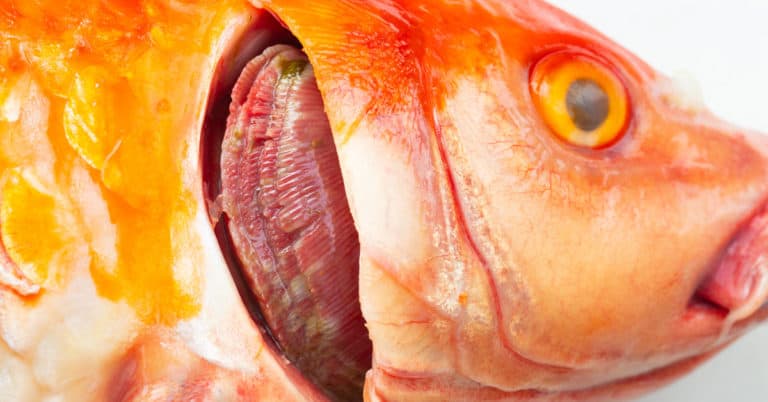The first step to keeping your pond healthy is ensuring that the water is clean. Without proper filtration, algae can grow at an alarming rate and turn the water green or brown. This not only looks unpleasant but also affects the health of fish living in it.
Luckily, there are many ways to keep your koi pond clean. One way is by using a UV light for koi ponds, which kills bacteria, floating algae, and viruses while maintaining optimal water quality.
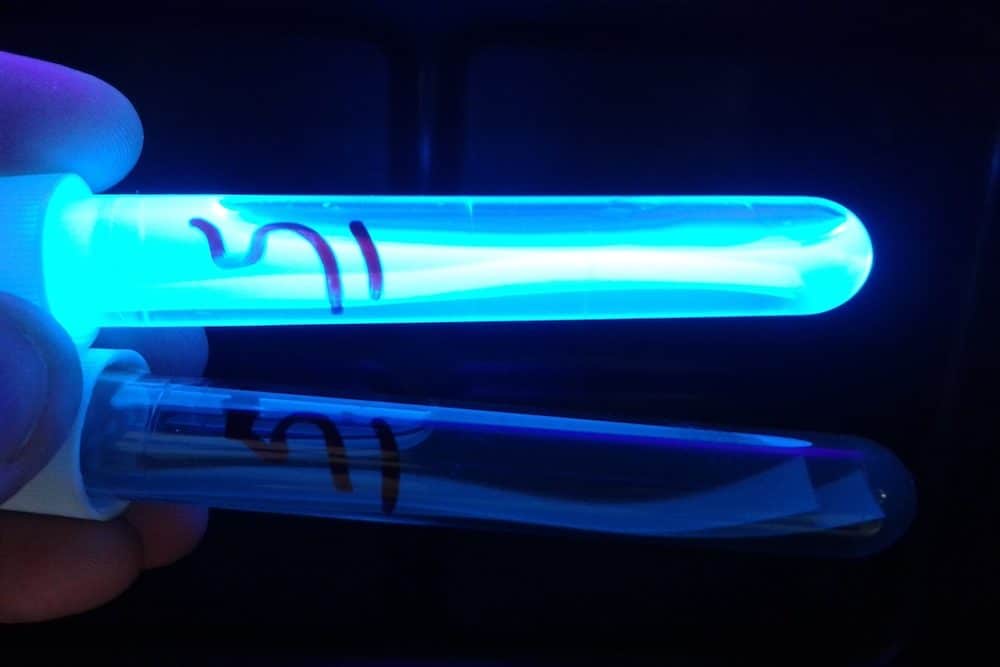
There are many significant benefits to having a UV lamp installed in your pond. One of the most common reasons to have a UV light is to kill any algae that might grow inside the pond.
These lights have other benefits, such as reducing harmful bacteria, particles and killing pond algae, which is why they are often used to maintain good water quality and clarity. Installing an aqua ultraviolet light can help keep your pond fish healthy and happy by eliminating parasites that might affect them.
This article will provide information about how UV lights work and the benefits and drawbacks so you can make a more informed decision about what's best for your garden pond.
Koi ponds can be a struggle to keep clean and free of algae. A UV, or ultraviolet light, will help reduce the amount of algae growing in your pond, prevent microorganisms from spreading and producing toxic by-products.
This is because it will kill the single-celled, free-flowing algae that are present in your pond water. The light damages their DNA and causes them to clump together, making them easier to filter out of the water.
A UV light is a system of fluorescent lamps that emit ultraviolet light. The lights are mounted within a housing or chamber and can be submerged in water for use in ponds. The ultraviolet radiation is similar to natural sunlight and damages the cell structure of algae and parasites.
Some algae and parasites can cause infections or disease in pond fish, making UV light an effective barrier for koi ponds. It helps reduce the likelihood of fish coming into contact with dangerous organisms.
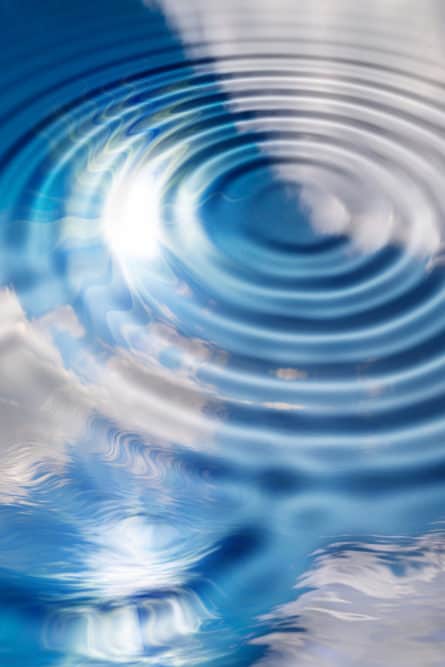
UV light for koi ponds is a very effective and simple solution for minimizing algae and other bacteria. But it must be used along with other filtration components for it to be more efficient. This is because algae cells that grow on liners or the surface of rocks will not be affected by UV light; it must float and enter the light chamber to be destroyed.
However, if UV lights are used for an extended period, it can imbalance a natural pond ecosystem. For a healthy pond, you need a balance of good and bad bacteria, both of which need to be present for the other to exist.
With too much algae, there is no room for good bacteria to grow. When using a UV light for your pond, make sure it is combined with other filtration methods.
UV lights, also called UV filters, do not actually filter the water. Instead, the UV kills algae and microorganisms. The two types of UV filters are UV clarifiers and UV sterilizers.
Both the UV clarifier and the UV sterilizer will remove bacteria, algae, and parasites. The difference is that a sterilizer will be more effective at getting rid of parasites.
Additionally, the water moving through the sterilizer needs to move much more slowly to work properly, while very slow water movement is not required for a clarifier.
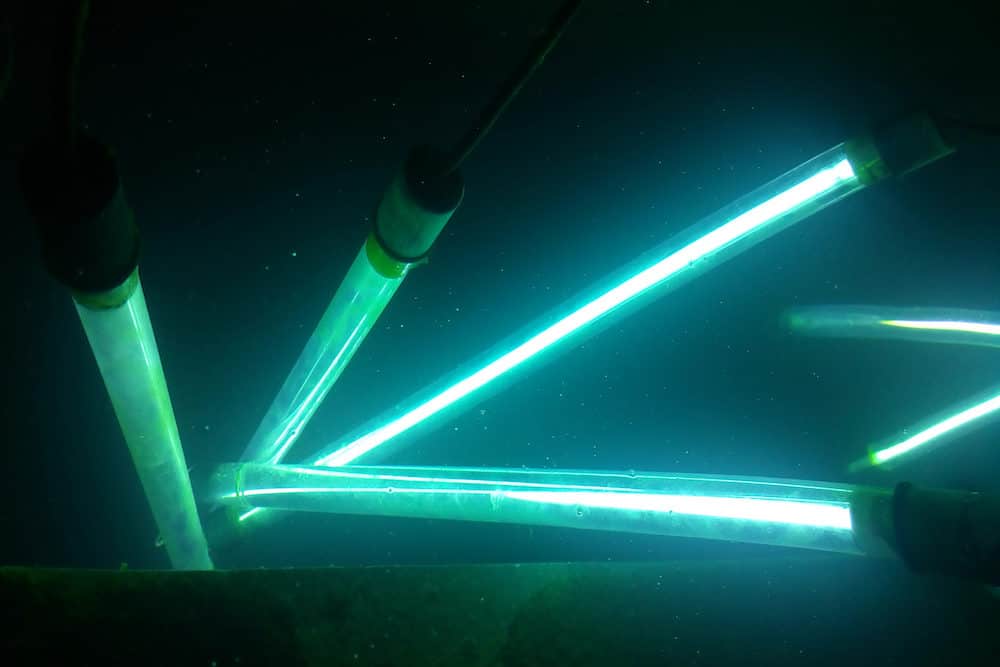
UV filters have a few pros and a few cons. One of the main pros is that it can reduce turbidity or cloudiness in your pond. UV filters clear away any dead algae floating around in your pond, which means you'll see an improvement in how clear the water will be after installing one.
Another benefit a UV pond filter has is that it acts as an ultraviolet sterilizer and kills bacteria, parasites, and other organisms that disrupt the water cycle.
On the downside, UV filters kill off some of the good bacteria and not only harmless algae but also some beneficial microbes. You also need to purchase an additional filter for debris because it will produce some waste by using a UV filter on top of your current filter system. All these factors make UV filters more expensive to run in the long run.
UV filters also reduce or even eliminate any medications in your water, effectively rendering it useless. This will put you at risk of having too much medicine in your pond, which can be hard to get rid of after adding it initially.
When using a UV filter, you will need to be very careful of how much medication you put into your pond. You may also not be able to use it at all with certain medications because they will kill off any beneficial bacteria if used with a UV filter.
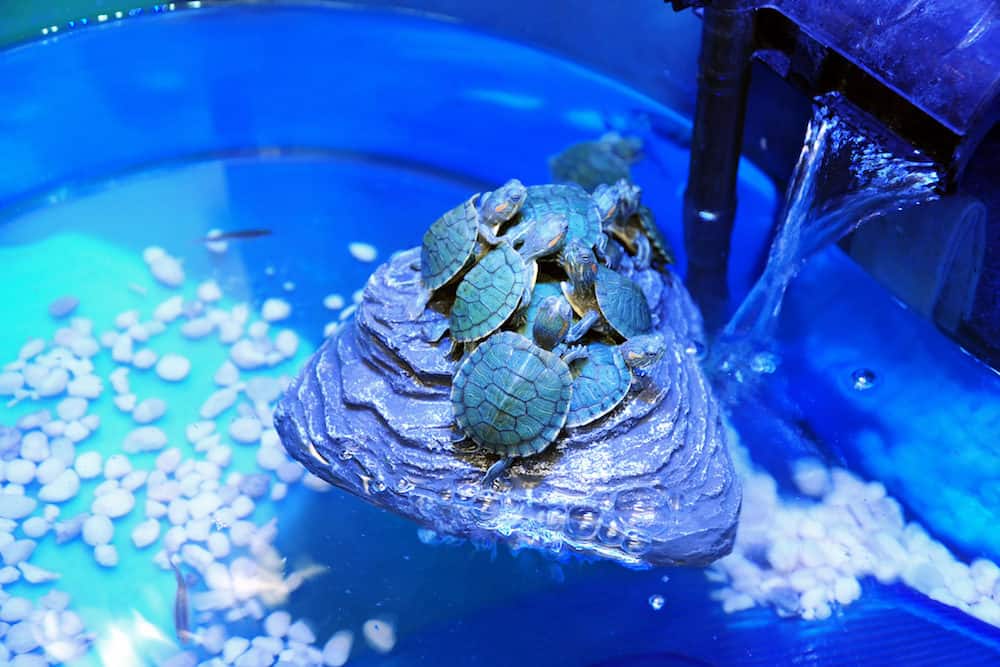
Finding the right UV filter for the koi pond you have can be a challenge. To help determine the proper UV light for your pond, here are some things you should look for.
When choosing a size of UV clarifier, you must first determine how many gallons per hour you plan to pump. By measuring your pond's width, depth, and length, you can determine how many gallons of water your pond holds.
Next, you want to decide how often you pump your pond. There are a few factors to consider, such as the climate and the number of fish in the pond. Generally, you will want to pump the entire contents of the pond every hour.
Then, decide if you need a clarifier or a sterilizer. The main difference between the clarifier and sterilizer is the strength of the pond UV light. As a rule of thumb, if you have a pond with 10 W of UV light per 1000 gallons, the unit will clarify water. If you have 30W of UV pond light per 1000 gallons, it will be used as a sterilizer to eliminate green water.
The quality of water in your pond is important for maintaining a healthy environment for the fish. Aside from ultraviolet light, there are various other methods to improve water quality in your pond.
The following tips will provide you with ways to improve the water quality in your pond:
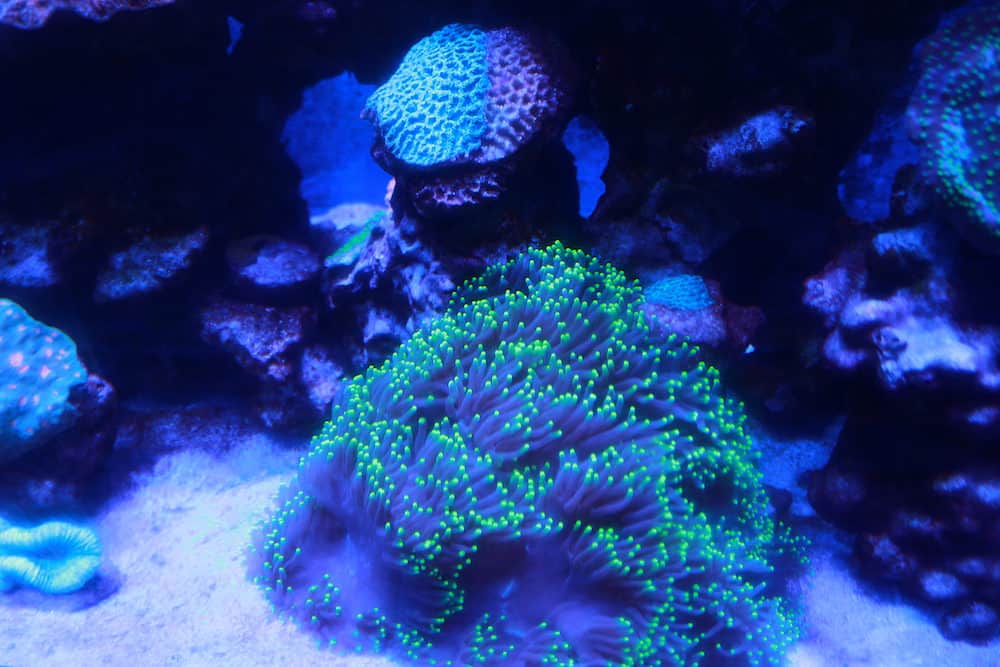
It's essential to have a healthy population of fish in your pond. If you have too many fish for the size of your pond, there will be a lot more waste which can cause problems with water quality.
One of the most important things you can do for your fish is to not over-feed them. If you feed them more food than they can eat in 2-3 minutes, it will start to decay in the pond. Choose quality food that floats instead of sinking if it goes uneaten.
Introduce oxygenating plants such as lilies and water ferns that will bring oxygen to your pond, increasing the amount of dissolved oxygen (DO) in the water of your pond. The more DO the fish have, the better they will resist disease and fight bacterial infections.
Shutting off the pump will cause an accumulation of bacteria from decomposing leaves and other organic matter that will sink to the bottom of the pond. If left untouched, organic matter can break down and cause an unpleasant odor. Also, the water will become colder than usual, especially during nights when the pump shuts off. This lack of oxygen can kill many organisms that live in your pond.
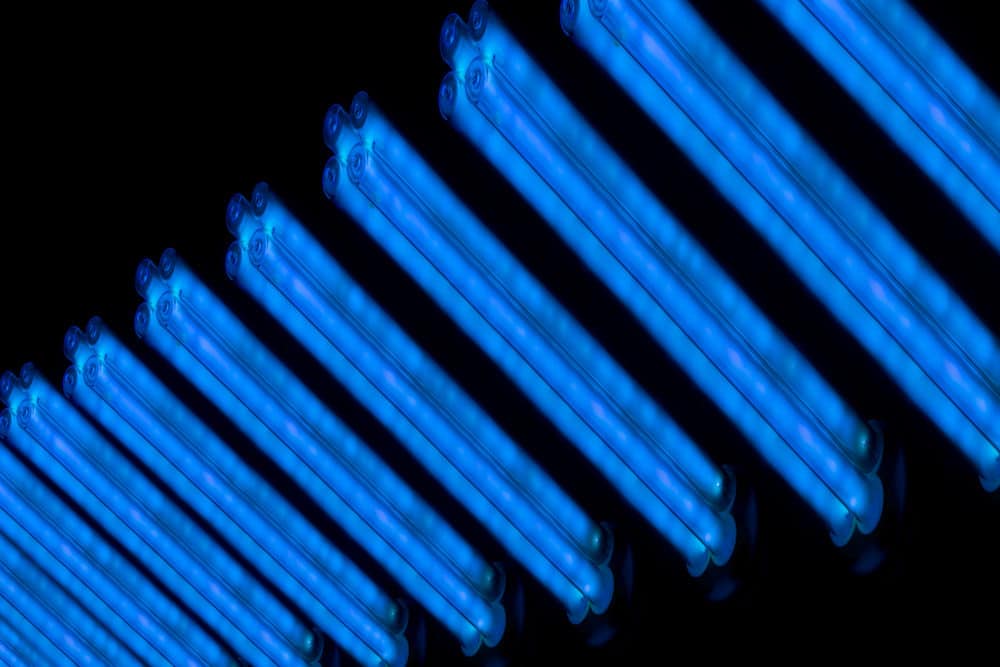
It is important to scoop out fallen leaves from your pond as soon as possible so that they do not sink all the way to the bottom. Leaves falling into a pond can start causing havoc with water quality, especially if they rot. Rake them out of the pond before they begin to decompose, leading to increased ammonia levels.
Ammonia in your pond can be highly harmful to fish and should be removed as soon as possible. If you've seen your fish jumping out of the water, there's a high chance that you're dealing with an ammonia spike.
If this is the case, simply treat your pond water with an ammonia neutralizer and replenish it with beneficial microbes to help keep your pond water healthy and clean. You may also want to install an automatic dosing system to dispense treatments that help maintain a proper nitrogen cycle.
You can improve the oxygen content of your pond by using an aerator. Not only will this help reduce ammonia levels, but it will also make your fish much more active and healthy. You shouldn't need to use an aerator all year round, but it's still very beneficial if you have a tropical fish or koi pond.

